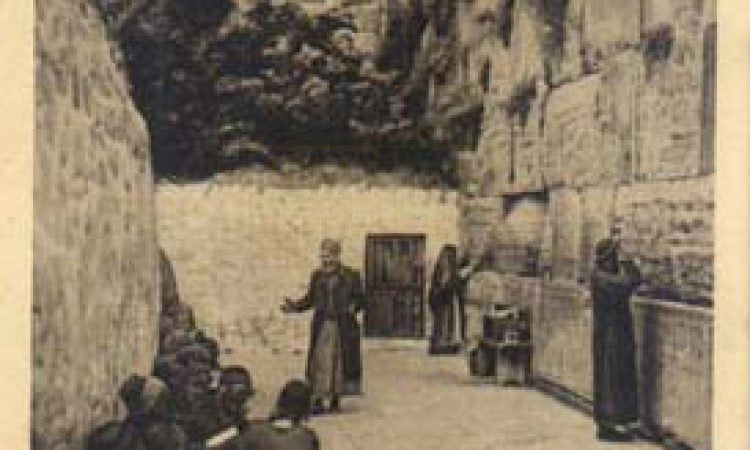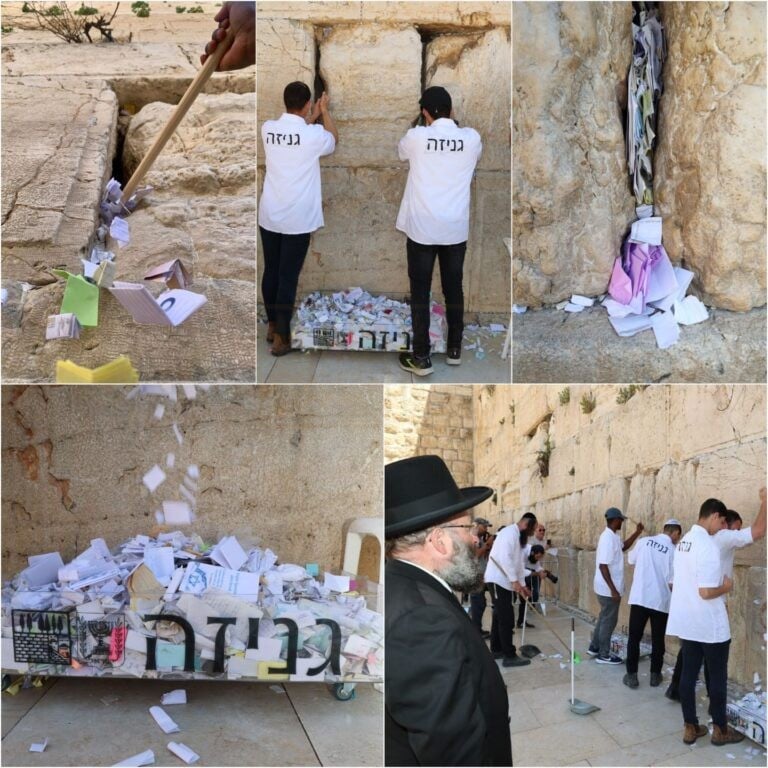Parashat Chukat 5781
Rabbi Shmuel Rabinowitz, Rabbi of the Western Wall and Holy Sites
In this week’s Torah portion – Parashat Chukat – we read about the “Mei Meriva (Waters of Strife)” event. As a result of this event, Moses and Aaron – the leaders of the congregation – did not merit bringing the Jewish nation into the Promised Land. The Torah describes that when the Jewish nation reached the Zin desert, they fought with Moses and Aaron over not having water to drink. Moses and Aaron then turned to G-d and He instructed them to gather the congregation and speak to the rock that would then release water. The Torah tells it like this:
Moses and Aaron assembled the congregation in front of the rock, and he said to them, “Now listen, you rebels, can we draw water for you from this rock?” Moses raised his hand and struck the rock with his staff twice, when an abundance of water gushed forth, and the congregation and their livestock drank.
(Numbers 20, 10-11)
Moses and Aaron gather the congregation around the rock. There, Moses admonishes the nation for lack of faith in G-d and then, before their eyes, performs the incredible act: he hits the rock twice with his staff and immediately an abundance of water streams from it.
G-d immediately turns to Moses and Aaron with the following words:
Since you did not have faith in Me to sanctify Me in the eyes of the children of Israel, therefore you shall not bring this assembly to the Land which I have given them.
(Ibid Ibid, 12)
Moses and Aaron, the incomparable leaders who led the children of Israel from their slavery in Egypt, emissaries of G-d who performed signs and wonders to liberate them from Egypt, those same leaders who led the children of Israel for forty years in the desert with infinite devotion – ultimately were not privileged to lead the nation to the long-awaited goal of reaching the Land of Israel.
What was Moses’ and Aaron’s sin that led to such a severe punishment?
Many commentators have offered their interpretations. One of the most interesting is that of Rabbi Abraham Ibn Ezra (Spain, 12th century), a renown biblical commentator, poet, philosopher, and scientist. According to Ibn Ezra, the sin of Moses and Aaron was being swept away by the emotions that stemmed from the dispute with the children of Israel – anger and resentment. Ibn Ezra explains that the signs and wonders exhibited by the prophets were done through utter unity with the Creator. This unity allowed for changes in nature, which is essentially part of that divine unity. The anger and resentment that Moses felt toward the nation distracted him from the divine unity and led to two things. First, Moses – the greatest prophet – erred and disobeyed G-d’s instructions, hitting the rock instead of speaking to it. In addition, this distraction led to the miracle not taking place immediately. The water did not stream forth until after Moses was forced to hit it a second time. At that moment, between the first and second strike, G-d’s name was desecrated, since it seemingly was unable to change nature.
A similar idea was briefly stated by the sages of the midrash:
Moses, our teacher, because he succumbed to anger, he succumbed to error.
(Sifri, Numbers 31, 21)
There is no doubt that the severity of the punishment given to Moses and Aaron, not being privileged to enter the Promised Land, was in accordance with their being both leaders of the nation and noble people. There is a different standard of behavior expected of leaders, specifically of spiritual leaders, especially in challenging times. But despite this, we have something to learn from the act and the interpretation of it regarding the trait of anger and of its impact and destructive repercussions. Almost everyone has, in their personal lives, moments when anger and getting emotional lead to a loss of harmony, both internal and external, and to uncontrolled actions that almost always lead to unwanted results. We can learn from G-d’s reaction to Mei Meriva that we have the power to overcome our emotions, even during challenging times, and maintain emotional equilibrium with our surroundings in any situation.








